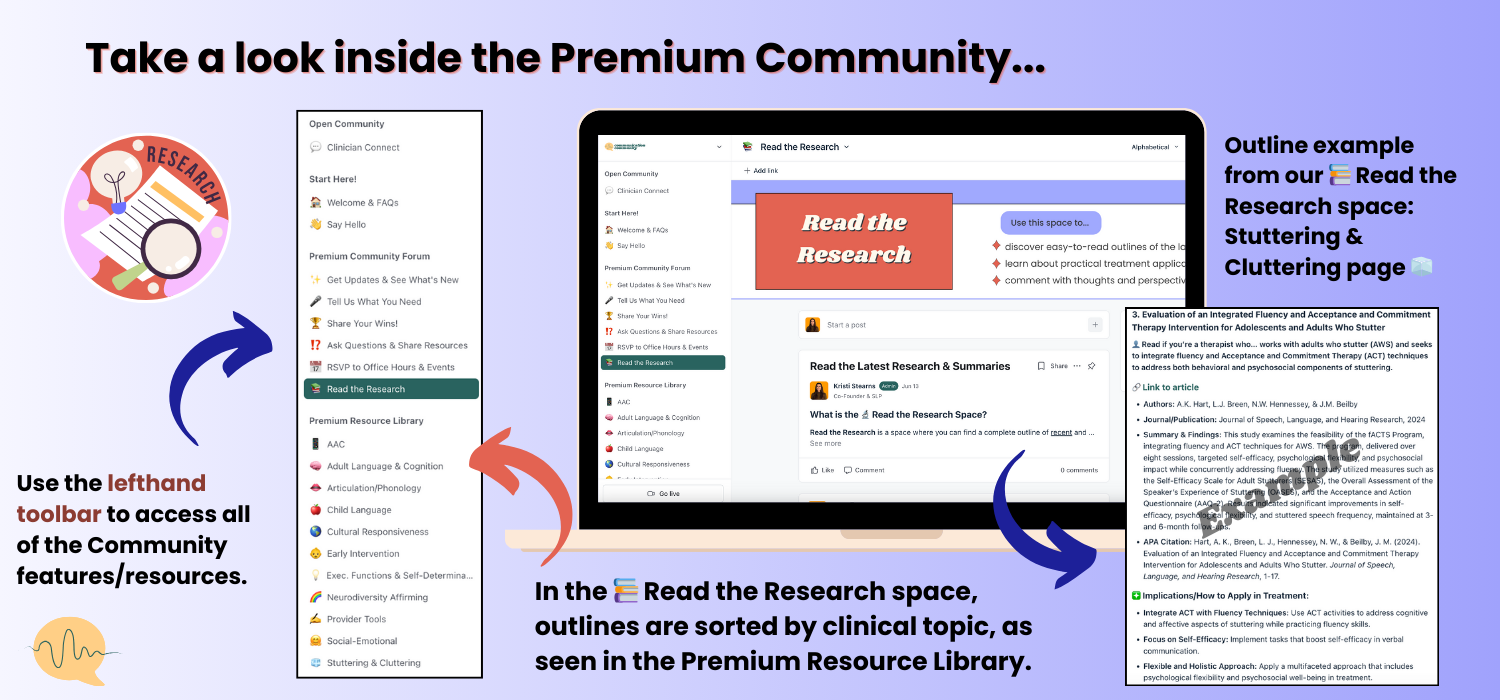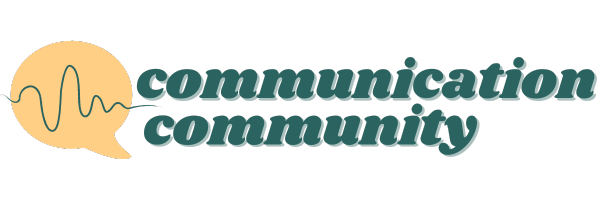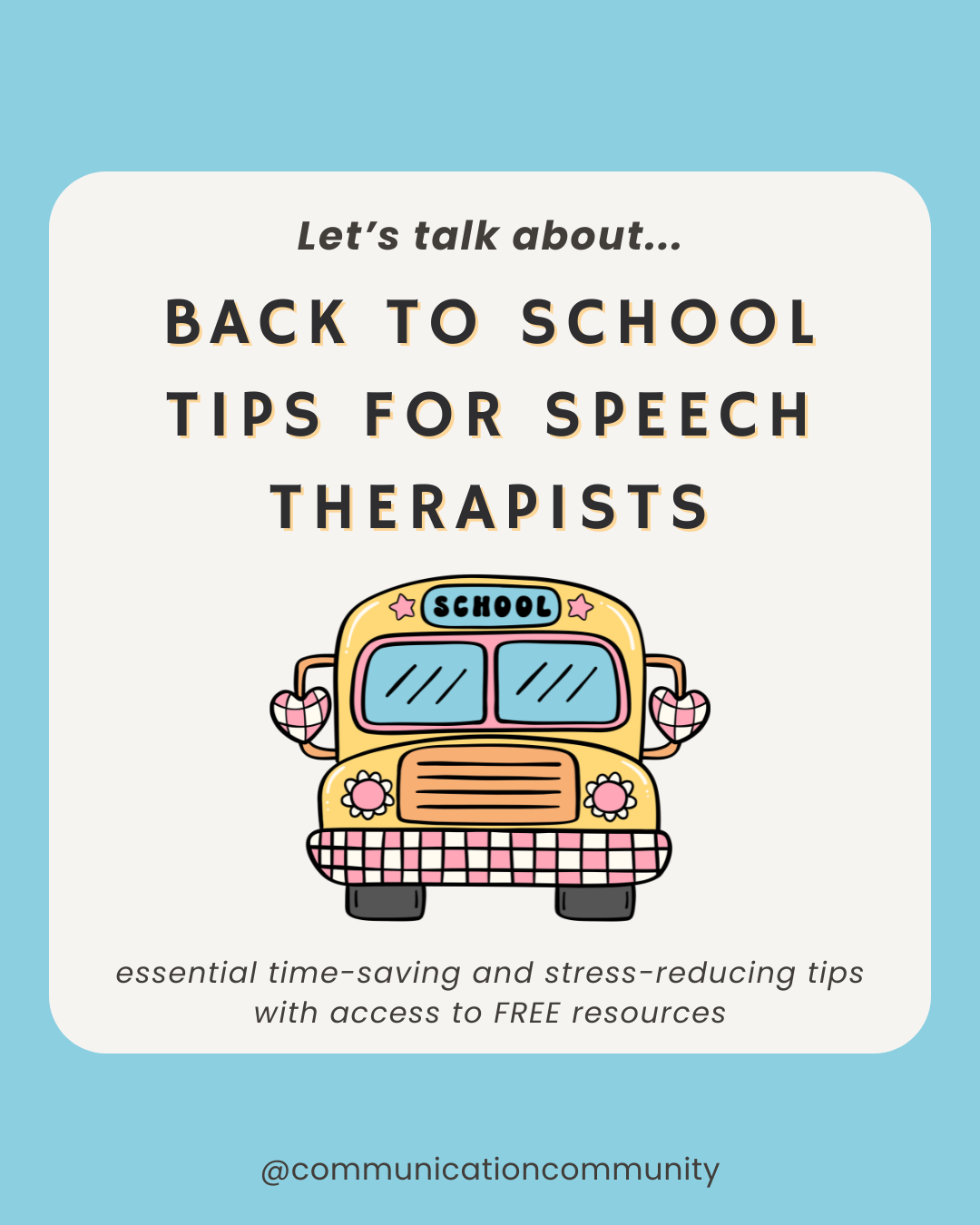A Speech Therapist’s Prep Guide to Start the School Year Off Strong
As the new academic year approaches, it's time for speech-language pathologists (SLPs) to gear up for another year of helping our students succeed. From organizing materials to staying updated with the latest research, there’s a lot to consider. We've provided a comprehensive guide to ensure you’re prepared, along with some stress-reducing and time-saving resources available through our Premium Community.
You can learn more about our Premium Community in this post.
1. Organize Your Workspace
A clutter-free workspace can significantly enhance your productivity and focus. Here are some organizational tips:
- Declutter: Remove unnecessary items from your desk and shelves. If you didn't use it last year, you're likely not going to find much use for it this year. Don't want to purge? Find a reliable storage location where you can easily locate this item later, but remove it from your daily workspace.
- Create a File System: Create an efficient filing system for student records and therapy materials. Color-coded folders (I prefer an accordion one that travels with me) or labeled binders can make it easy to find those IEP documents and printable materials you need in a pinch.
- Implement Digital Organization: Use cloud storage solutions like Google Drive or Dropbox to keep your digital files accessible and organized. For example, in our Premium Community, all digital resources are accessed via Google Drive, making it simple and efficient to save them to your personal drive. This ensures you have quick access to the materials you need whenever you need them.
2. Understand Your Team and Points of Contact
Knowing who is on your team and clearly defining roles is crucial for ensuring smooth and effective collaboration in a school setting. When roles and points of contact are well understood, it prevents confusion, enhances communication, and ensures that everyone is working towards the same goals. This is such an important piece of the professional puzzle and something we hear about (when not implemented) all the time. Establishing this at the start of the year is helpful so that everyone knows what their expectations are (and aren’t!).
- Identify Key Team Members: Familiarize yourself with all key members of your team(s), including special education teachers, general education teachers, administrators, other therapists, and support staff. Clarify each member’s roles and responsibilities to prevent overlap and ensure all aspects of student support are covered. Having this documented somewhere is a huge plus.
- Establish Clear Points of Contact: Determine primary contacts for different types of issues and set up clear communication protocols. This helps manage expectations and maintain efficient communication, which (hopefully) ensures a quick resolution of any issue.
- Schedule Regular Team Meetings or Systems of Consistent Contact: If possible, hold regular meetings or establish a consistent communication system (e.g., Friday email updates) to discuss student progress, address concerns, plan interventions, and stay on top of necessary meetings and paperwork. Using an agenda/minutes template to keep discussions focused and ensure accountability can help a lot in the long run by fostering better teamwork and collaboration.
3. Enhance Your Assessment and Goal Writing Process
Effective assessment and goal writing are crucial components of successful speech therapy. Using tools tailored to individual needs, finding a way to connect with clients/families before sessions, and crafting clear, reliable goals can lead to comprehensive and effective therapy. Even if you’re not completing assessments immediately at the start of the school year, having questionnaires and interviews ready can help ‘future you’ so much! Here’s how to streamline and improve your assessment and goal-setting processes:
- Connect with Clients and Families Pre-Assessment: Whenever possible, use questionnaires or conduct interviews before meeting with the student to gather essential background information and understand their unique needs. We know this can sometimes be challenging, but even a little effort can make a big difference! This approach helps build rapport and trust while providing a clearer picture of your student's situation.
If you can’t meet with a client or their family before therapy, we recommend using ethnographic interview questionnaires. SLP Nerdcast discussed this in one of their podcasts, which inspired us to create a comprehensive PDF-fillable ethnographic interview form—one of our favorite resources to date. You can share this information with other team members, or if it has been established in a meeting that someone else is responsible for gathering this information from the student's family, reach out to that team member.
- Use Individually Appropriate Assessment Tools: Select assessment tools that suit the specific needs of each student, which may include formal standardized tests, informal observational checklists, or a bit of both. Tailoring your assessment approach ensures that you gather the most relevant and accurate information for each individual, and knowing what tools you have available at the beginning of the school year can help prevent that last-minute panic when you only have 15 minutes to prep before an evaluation session.
- Write Clear and Reliable Goals: Develop goals that are reliable, measurable, and easily understood, ensuring they can be seamlessly passed off to another clinician if needed. This clarity helps maintain continuity and effectiveness in therapy. Well-defined goals serve as the foundation and direction for all therapy activities, ensuring that each session is purpose-driven and progress-oriented. Though you may not have to write goals immediately at the beginning of the school year, we’ve got you covered with goal-writing! Every single bit of our top-selling goal bank content (100+ pages) is included in a Premium Community membership.
4. Efficiently Plan Your Therapy Sessions
Effective planning is key to successful therapy sessions. Here’s how to streamline your planning and do less of it over time to achieve the same results:
- Use a Planner: Some type of planner to help you keep track of sessions, IEP meetings, and other important dates is crucial. I alternate between my Google Calendar and something like this. At the beginning of the school year, try your best to record ALL important dates that you’re aware of (this may include meeting dates, school breaks, PD days, report card distribution, etc.). It can also be helpful to set up reminder notifications a week or two before big meetings/events. That being said, always account for unexpected events or cancellations 🙃.
- Make Use of a Resource Library: To guarantee you’re always prepared, have your materials ready and organized. Create a solid list of your favorite “multi-use” materials that you know are reliable in a variety of situations. These can include laminated picture scenes, which are durable and versatile for many activities; thin, easy-to-travel books that can engage students without taking up much space; and an iPad loaded with useful apps and digital resources (ahem - wordless videos!). Having these go-to items at your fingertips can save time and reduce stress when you need a quick solution. Remember, when in doubt, less is often more. Keeping your toolkit simple yet effective can make a significant difference in your sessions.
You can utilize our FREE Open Community for access to a handful of freebies, ranging from Core Word of the Week to Problem Solving in Text worksheets. For an even broader selection, our Premium Community offers a vast library of therapy materials, such as neurodiversity-affirming resources, goal banks, and SO much more, collectively worth over $1000 - a steal.
- Embrace Monthly Themes: Plan activities around monthly or seasonal themes to keep sessions relevant and engaging. Download our FREE August Activity Calendar in our Open Community for fresh ideas. Monthly themes not only keep things fun but also provide a sense of routine and structure to therapy sessions. In the first few weeks of school, use your planner to jot down 2-3 theme ideas for each month. This can help streamline your planning throughout the year.
5. Stay Informed with the Latest Research
We know that staying updated with current research and education can significantly enhance our practice. However, we want to steer away from feeling like it is another ball to juggle in our already busy work lives. Another perk of our Premium Community is our time-saving 📚 Read the Research space (learn more here), where you can access easy-to-read outlines, summaries, and real-life implications of newly published articles in the field. Taking some time to build quick research reviews into your weekly or monthly schedule can help motivate you to keep up with it all year. As a Premium Community member, accessing the Read the Research space and integrating new research-based practices into your sessions has never been easier.

6. Leverage Technology for Therapy and Admin Tasks
Embrace AI and other technological advancements to enhance your therapy sessions:
- Try Out AI Tools: Explore how AI can be integrated into speech therapy to personalize and improve outcomes. We like to use ChatGPT, but there are many more options to choose from…Talk about time savers. Recently, we even wrote an article about it to give you some tips! Worried you are not “tech-savvy enough for it?” Trust us, it’s much less “scarier” than it seems. AI tools are great for tasks such as developing articulation word lists and, scanning (nonconfidential) emails for clarity and conciseness (a personal favorite).
- Make the Most of Digital Resources: If you’ve been around for a while, you know we love, wordless videos, and they are a consistent multi-use favorite for us (which we have some fab companion worksheets for in our Premium Community). However, there are a ton of other free digital resources available to keep your students engaged. A few of our favorites include: Dogo News (for current events), Starfall Education (for interactive learning), PBS Kids (lessons and ideas), and ReadWorks (literacy resources).
7. Regularly Prioritize Self-Care and Personal Growth
Say it with us: Taking care of yourself is just as important as taking care of your students. We almost put this at the top of the post, but we thought it would be a perfect closing reminder as we jump back into the school year. Remember, you can't pour from an empty cup.
- Take Personal Days Without Guilt: It's essential to take personal days when you need them (they are there for a reason)! Feeling guilty about taking time off only adds to stress and burnout. Facts. Personal days are vital for recharging and maintaining your mental health. Give yourself permission to rest and rejuvenate without feeling invalidated. Remember, a well-rested mind is more effective and productive.
- Find Your Community: Battling imposter syndrome? You're not alone. Unfortunately, this psych term has been far too common in our field when we are a team of strong, capable, clinicians who entered this field to support the needs of others. Connecting with others who understand your experiences can provide much-needed support and validation.
Inclusion and community are at the forefront of our values and have been since we started as a blog five years ago (ahh!). As friends and co-founders, Kristi and Becca, we couldn’t have grown this meaningful community without the support of each other and, of course, you—our readers. Thank you for your support.
After reflecting as clinicians and gathering feedback from our readers, we realized the true reason behind creating our membership community: to offer inclusive options that meet you where you’re at, whether through our free Open Community or our paid Premium Community. It's a place to find like-minded support and so much more. We invite you to join us to feel less isolated, more empowered in your work, and help you have a successful year!
This post contains some affiliate links and we are (slightly) compensated if you use them, but all opinions are our own. We appreciate the support!


